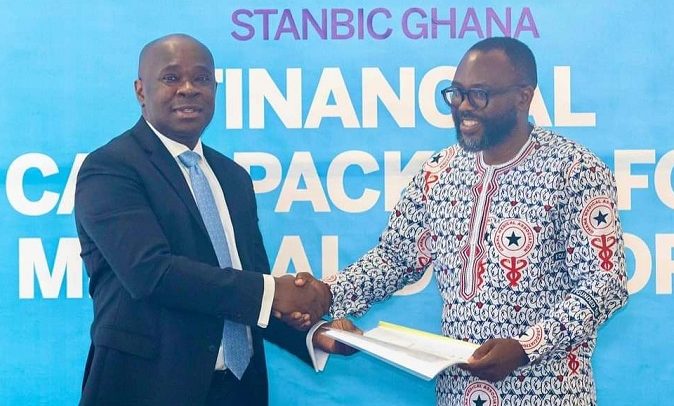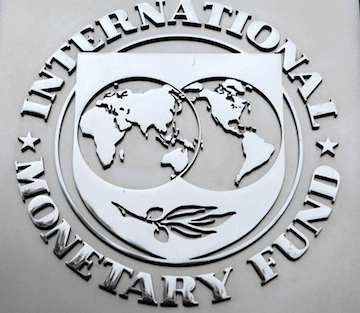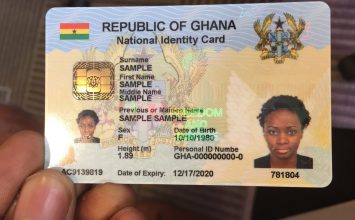
By Samuel Lartey(Prof)
As Ghana seeks to emerge from the economic crossroads of debt overhangs, currency volatility, and unemployment, the message resounds clearer than ever: rebuilding Ghana demands more than infrastructure and slogans—it requires discipline, and finance must sit at the core of the national reset.
Without financial discipline across ministries, departments, agencies, state-owned enterprises (SOEs), and households, every ambitious policy becomes a house built on sand.
Ghana is not bankrupt of ideas it is bankrupt of the discipline to implement them. In an era of limited fiscal space, public trust deficits, and mounting debt servicing costs, a national culture of accountability, prudent spending, and citizen-led fiscal stewardship must take root.
The Financial Anatomy of a Rebuild
The economic data as of 2024 paints a sobering picture:
- Ghana’s public debt stood at GH?658.6 billion (approximately 66.4% of GDP).
- Interest payments on debt consumed GH?59.7 billion, nearly 35% of total revenue.
- The government missed its 2023 revenue target by 8.1%, while expenditure overruns contributed to a deficit of 5.8% of GDP, breaching the 5% Fiscal Responsibility threshold.
Ghana’s recent three-year IMF Extended Credit Facility (2023–2026), anchored on fiscal consolidation, debt restructuring, and revenue mobilization, demands sweeping reforms across all financial outposts. But more importantly, it demands a new behavioural economy where every pesewa is accounted for and every spending decision is tied to value.
Discipline Begins at the Top: Ministries and SOEs Must Lead
Ghana’s Ministry of Finance, Ghana Revenue Authority (GRA), and Controller and Accountant-General’s Department (CAGD) must institutionalize zero-based budgeting, linking every cedi to performance and outcomes.
There are 51 State-Owned Enterprises, but only 18 were profitable in 2022. Together, SOEs owe over GH?30 billion in contingent liabilities to the public purse. A legally enforced Fiscal Risk Management Framework, tied to parliamentary oversight, is overdue.
The Public Financial Management Act (Act 921) must be more than a shelf document. Financial discipline must become a governance imperative, not a political option.
Citizens at the Centre: From Voter to Fiscal Partner
Financial rebuilding is not only a job for the Finance Minister it is a job for the market woman, the Uber driver, the civil servant, and the university student. Ghana’s tax-to-GDP ratio remains below 13%, far behind the 18–20% average in Sub-Saharan Africa. Of the estimated 15 million economically active citizens, fewer than 3.5 million are registered taxpayers.
The GRA’s drive for digitalization—through e-VAT, the Ghana Card-TIN merger, and property rate automation—must be matched with a new citizen mindset: that taxes are not a burden, but a partnership in nation-building.
The e-Levy Experience
In 2022, the controversial Electronic Transfer Levy (e-Levy) was introduced at 1.5%, later reduced to 1%. It was projected to raise GH?6.9 billion, but only generated GH?614 million in its first year a 91% shortfall. The problem was not the policy but lack of buy-in, weak public trust, and poor communication.
Lesson?
- Financial policies fail where ethical governance and transparency are absent.
- Sustainability through Ethics, Governance, and Intergenerational Equity
Ghana’s rebuilding must be rooted in ethical governance. The suspension of the Chief Justice in June 2025 amid allegations of financial misconduct sent shockwaves through the rule-of-law ecosystem. It reminded the nation that justice, like finance, must be clean to be trusted.
The Office of the Special Prosecutor (OSP) and the Commission on Human Rights and Administrative Justice (CHRAJ) must be resourced not just to investigate, but to deter. Corruption alone drains an estimated GH?13 billion annually a cost Ghana cannot afford.
Investing in Public Investment Management Systems (PIMS), national asset registries, and digitized procurement processes through the Ghana Electronic Procurement System (GHANEPS) will plug leakages and increase efficiency.
The Road Ahead: A Discipline-Led Economic Doctrine
Rebuilding Ghana means discipline in:
- Revenue collection: Ensuring the GRA hits the GH?160 billion target in 2025 through digital tax solutions and enforcement.
- Expenditure control: Reducing arrears accumulation and focusing on capital over consumption.
- Public sector reform: Reducing waste, ghost workers, and salary irregularities through biometric audits.
- Household savings culture: Moving from consumption-driven lifestyles to investment and wealth-building behaviours, aided by digital financial literacy campaigns.
Conclusion:
Ghana’s future is not determined by the size of its natural resources, nor by its political slogans. It is determined by its discipline to save, invest, spend wisely, and account honestly. Rebuilding Ghana is a national project with finance at the core, discipline at the edges, and ethics as its foundation.
To achieve true sustainability—financial, institutional, and social, the call is simple:
- Live within our means, invest in what matters, and account to those we serve.
- The time for fiscal patriotism is now.
“If you want to go fast, go alone. If you want to go far, go together.”
Let Ghana go far financially united, ethically grounded, and sustainably rebuilt.
The post Rebuilding economy: Prudent Financial Management at the Core appeared first on The Business & Financial Times.
Read Full Story












Facebook
Twitter
Pinterest
Instagram
Google+
YouTube
LinkedIn
RSS